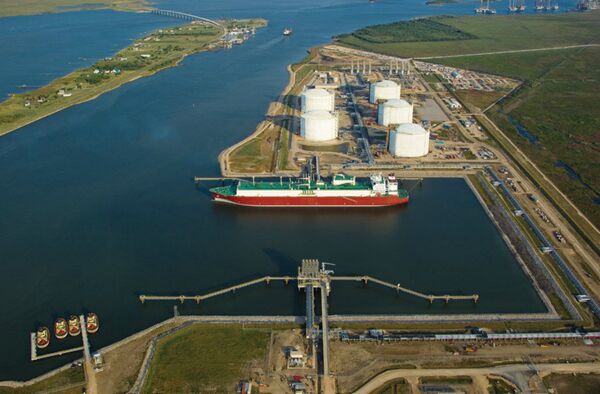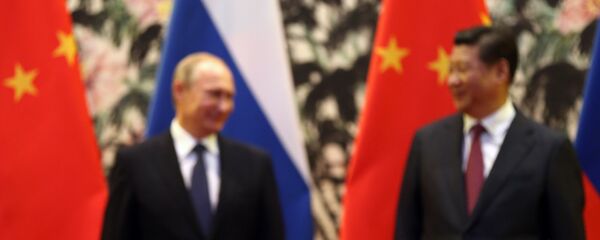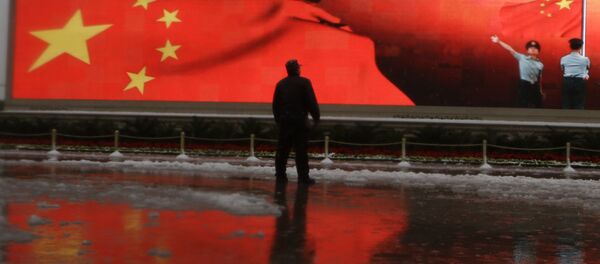On Thursday, US Commerce Secretary Wilbur Ross revealed the fruits of those trade talks. The trade agreements, which are set to enter force by July 16, will allow US firms more access to the Chinese market for goods and services.
Analysts said that the agreements, which are part of a "100-day action plan" announced by Trump and Xi last month, seem to represent a win for Trump and some compromise from China.
"Trump repeatedly accused China of currency manipulation and expressed dissatisfaction with current trade relations. Xi Jinping has decided to compromise, in order to stop things from going further," Ivan Kapustiansky, an analyst with Forex Optimum, told the Russian newspaper Vzglyad.
Despite Trump's threats, the volume of US exports to China makes the prospect of a trade war unpalatable to Washington, too. While the trade deficit in goods and services last year was $309.6 billion in favor of China, the US exported $169.3 billion, making China the country's third largest export market after Canada and Mexico.
"This is certainly a breakthrough for Trump, since it will clearly reduce the US trade deficit with China. According to our estimates, it will be reduced by 5-10 percent, if the US continues to expand trade in other sectors of the economy," Vadim Merkulov, an analyst from Russian investment firm Freedom Finance, said.
Other winners are US credit card firms, which will be allowed to begin the Chinese licensing process and rival China's UnionPay system, which has enjoyed a near-monopoly there.
"This is a huge win for Visa, MasterCard and American Express. A huge, fast-growing Chinese market has opened up for these companies. Americans will get a share in the huge volume of non-cash payments in China, and the Chinese get the opportunity to pay with plastic outside mainland China without any problems," Merkulov added.
In addition, China is to allow foreign-owned firms in China to provide credit rating services. The agreement also stipulates that China will issue bond underwriting and settlement licenses to two qualified US financial institutions.
In an interview with Bloomberg, Ross trumpeted the agreement as a historically good deal.
"This is more than has been done in the whole history of US-China relations on trade," Ross declared.
In turn, China's Deputy Finance Minister Zhu Guangyao described the agreements as "balanced" during a briefing in Beijing.
"The 100-day China-US economic plan is a plan of cooperation, a plan of actions and a plan of win-win arrangements," Zhu said.

The world's third-biggest LNG importer, China is expected to continue increasing imports of the fuel in the coming decade. Chinese LNG imports hit a record 3.73 million tons amid a cold snap in December and have continued a large year-on-year increase this year: in March 1.99 million tons were imported, a 17.6 percent year-on-year increase.
Australia and Qatar are currently the biggest exporters to China, but China has also invested heavily in Russian LNG. In April 2016, Chinese banks agreed to provide over $12 billion in financing for the Yamal LNG project in Sabetta, north-east of Russia's Yamal Peninsula.
In May 2014, the China National Petroleum Corporation signed a deal with Russian natural gas producer Novatek to supply the Chinese market with three million tons of liquefied natural gas annually for 20 years from the Yamal LNG.
"Now, the wholesale price of natural gas at Henry Hub, the largest US gas [distribution] hub, is 3.37 dollars per 1 million BTU, or $120 per thousand cubic meters. Taking into account the costs of liquefaction and transportation, this price could increase by 50 percent."
Despite the financial disadvantage of US LNG, Kapustiansky remarked that the US may try to force China to buy its LNG in return for political concessions. For example, Washington may offer to refrain from further exacerbating the strained situation in the Korean peninsula in return for gas purchases.
"China might buy more expensive gas from the US in exchange for support in the region regarding the North Korea issue, or the signing of new trade agreements," Kapustiansky explained.




